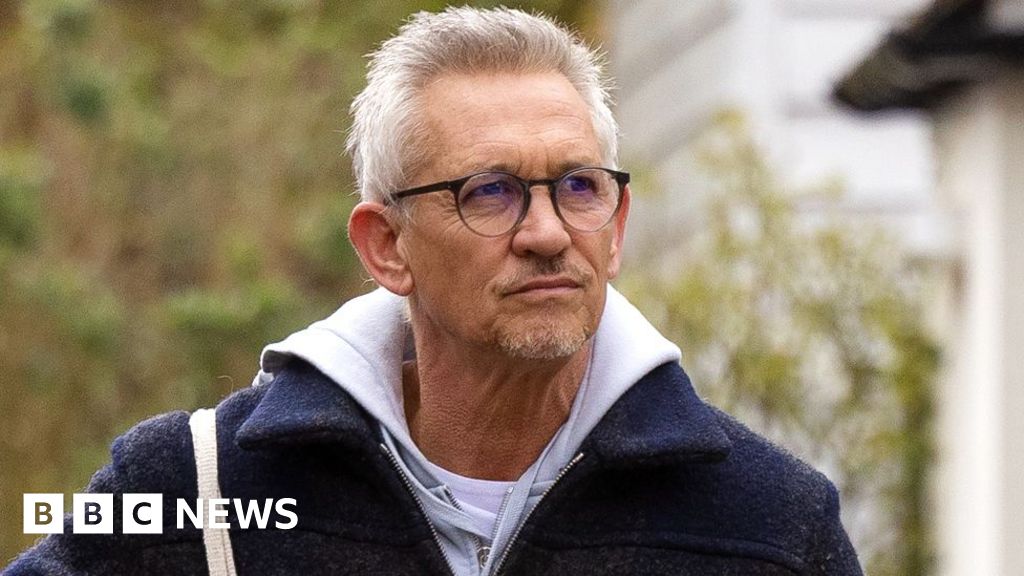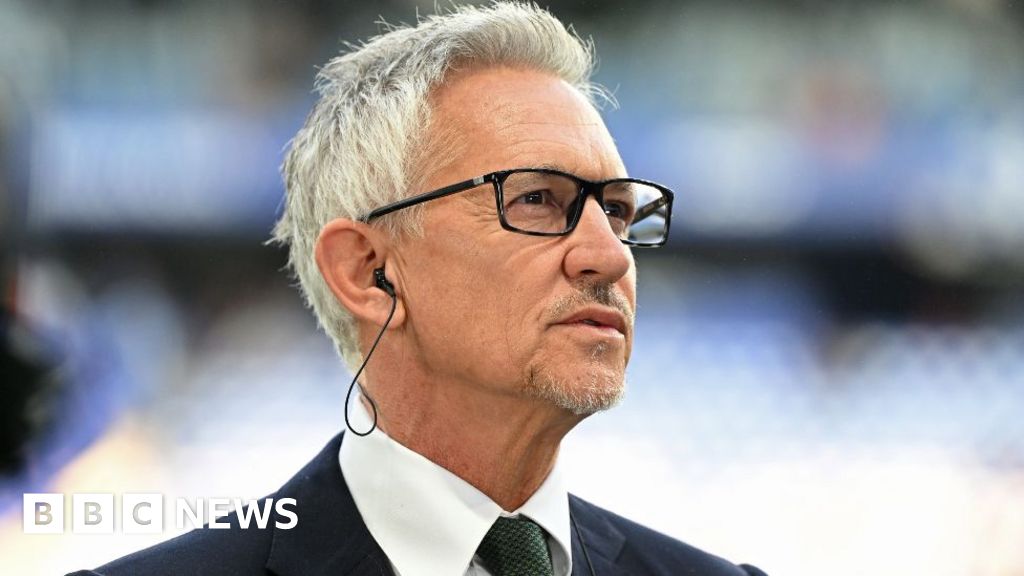ARTICLE AD BOX
By Paige Neal-Holder and Steffan Powell
Culture reporters
Image source, NETFLIX
Image caption,L-R: Simone Ashley (as Kate Sharma), Adjoa Andoh (Lady Danbury), Shelley Conn (Mary Sharma) and Charithra Chandran (Edwina Sharma)
The successful period drama Bridgerton returns for a second series this Friday - with two of its lead characters portrayed by actresses of South Asian heritage. Young actors from the same background tell BBC News why on-screen representation is so important to them.
"If you've not seen yourself on screen before, why would you ever want to go for that role?" Laraib Waheed tells us.
She wants to make a living in musical theatre one day, but for now she's sitting in the kitchen of her student house - taking a break from her training to chat.
The lack of South Asian actors in prominent television roles, she says, makes people like her worry their dream career is "not realistic". But the 19-year-old is optimistic that things are beginning to change.
"I think it's quite ground-breaking," says the student, who's living in Brighton. Born in London, her family is originally from Pakistan.
"You've suddenly got representation from not one, but two South Asian women and it's a period drama which traditionally you'd only see white cast members in."
What's rare about this according to Laraib is that usually when South Asian actors do get on screen they tend "to be in a supporting role or playing a stereotype."
"When I see any person of colour on-screen, especially if they are South Asian, it lights something up in me because you just don't see it."
Image source, Laraib Waheed
Image caption,Laraib hopes Bridgerton will change perceptions among South Asian communities in the UK
Bridgeton's first series is second only to Squid Game in the list of Netflix's most-viewed TV series.
Some critics have described the show as shallow, preposterous and cliché ridden, but the diversity of its cast was widely praised and audiences lapped it up in their millions.
Bridgerton has adopted a variation of colour-blind casting, where a person's skin colour plays no part in the decision to give them a role.
Show boss Chris Van Dusen describes it as colour-conscious casting, with freedom to give people from diverse backgrounds a role but where a characters race can still play a part in their story.
Television critic, Ellen E Jones tells us that seeing such a variety of ethnic backgrounds on screen is a positive step, especially since "period drama is such a massive part of the British film and TV industry, and if you exclude people of colour you're excluding them from a lot of the industry".
"The consequences of that is you've had generations of black and brown actors who are British being forced to go to America to find interesting roles like Idris Elba, Riz Ahmed and Thandie Newton have done," she says.
Giving actors access to a historically white-only world is a good thing, Ellen says, but adds: "It doesn't solve the issues of race and racism as it doesn't engage with those subjects at all.
"People want to escape into a fantasy and that's what Bridgerton does, and importantly it offers that to people of colour as well as to white people and I think that is important. If you understand it in those terms it is to be celebrated, but it's not about racism or race, it's not challenging any of those very embedded notions in our society.
"I don't think Bridgerton is doing anything wrong and I'm glad it exists, but there's room for so much more."
Image source, NETFLIX
Image caption,Charithra Chandran and Simone Ashley in the second series of Bridgerton
Sixteen-year-old Gia Lal has just finished an exam at college when she sits down to chat to us about her dream of being a soap actor.
"I'd love to be in something like Ackley Bridge, Coronation Street or EastEnders," she explains, saying that they're "enjoyable and inspiring".
Gia, who lives near Birmingham, says that seeing South Asian faces on major releases "makes me happy that these actors are getting recognised a lot more".
However, having prominent roles in series like Bridgerton is more than just inspiration for aspiring performers. Gia thinks it carries a message to the broader South Asian community in the UK as well.
She suggests South Asian parents and families "want their kids to be doctors or scientists", but with more people from these communities making a success of acting, Gia thinks it'll inspire more to be open about chasing futures in the performing arts.
"For kids and teenagers who want to go into acting and are really passionate about it it'll make them feel like they're not alone, they won't feel like the odd one out, they'll have somebody to look up to."
Image source, Laraib Waheed
Image caption,Laraib is hoping for a career in musical theatre
She's had to hide the truth of her studies to some of her family, pretending instead to be studying criminology.
Laraib is aware that, by speaking to us, they might learn the reality. "I think this is a discussion that is to do with community," she says.
"In the South Asian community it's typical to be pushed towards academic degrees, for example being a doctor, an engineer or a dentist and if you aren't one of these things it's not accepted.
"A lot of my family members don't know I'm an actor and it sounds ridiculous because I am. But if the South Asian community as a whole sees two main characters representing us, it reinforces the idea that it's possible [to have a successful career in acting]."
Charithra Chandran, who plays Edwina Sharma in the new series of Bridgerton, told the Radio Times the show has changed attitudes towards diverse casting but there is a pressure that comes with it.
"Minorities are often alluded to as being there to tick boxes, to fill a quota. I cannot tell you how unbelievably invalidating that is. It penetrates our minds and makes us feel like we're not worthy of success," the actress said.
"I had people at university tell me, 'you only got the lead in that show because they needed to have a person of colour in it'. It makes you doubt everything. When you are a minority you invariably feel the weight of representing your entire community. That's not imposed by anyone - but it's something I feel."
Image source, Reuben Jordan Virdee
Image caption,Reuben Jordan Virdee is studying at the Royal Brimingham Conservatoire
Reuben Jordan Virdee is sitting on his white leather sofa taking his time to consider the question of what these two roles mean for up-and-coming South Asian actors.
The 23-year-old is studying at the Royal Birmingham Conservatoire and is hoping to work in theatre one day.
After a pause, he says: "These are people that have done everything that their white counterparts done to get into this position.
"They've got their roles because they deserve it, and that in turn will lead to more roles for people like me and I think that'll just help people in the South Asian community.
"They're going to see that and think, well, if it's on TV, if my children are saying it's something they want to get into, then why not try?"
Reuben is supportive of programmes that use colour-blind casting to fill the roles in their programmes, however, like Ellen, he also strikes a note of caution.
If it gets to a point where the industry thinks it is the only way to go, he says, then it's not servicing the stories of people as well as it should.
"I think that there needs to be writers and directors from different backgrounds also writing stories unique to different cultures, so we can all see them."

 3 years ago
134
3 years ago
134








 English (US) ·
English (US) ·